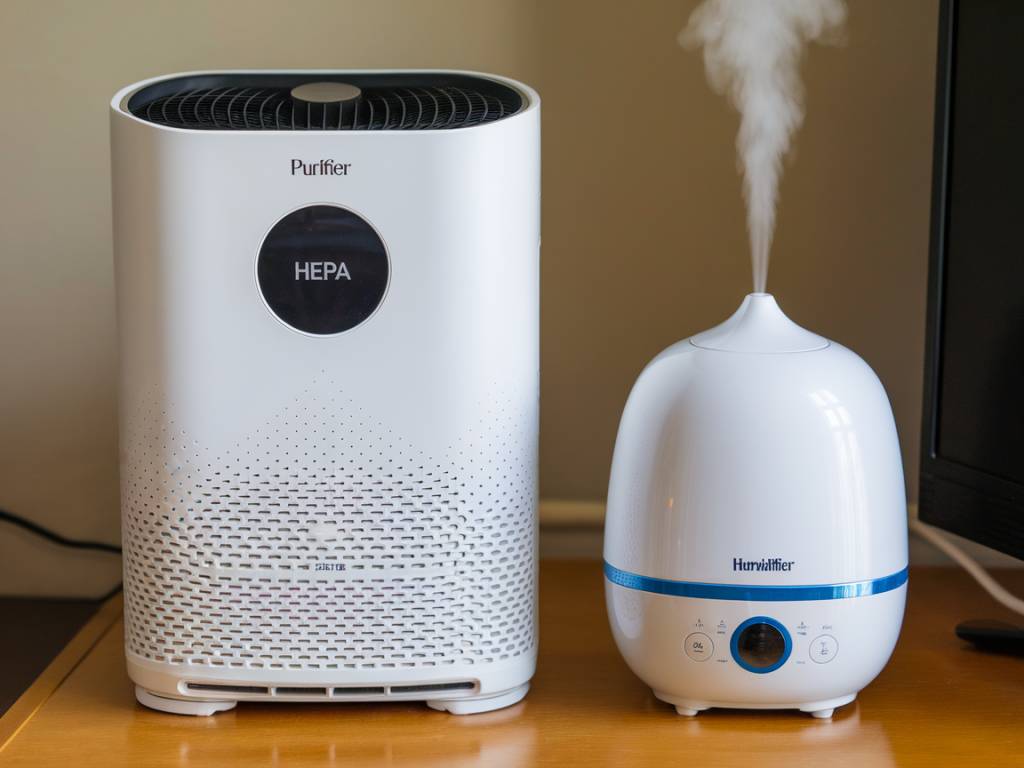« `html
Understanding Air Purifiers
Air purifiers are designed to clean the air within indoor environments. By removing contaminants, such as dust, pollen, and smoke, these devices aim to improve air quality. As pollution levels and allergens continue to rise, air purifiers are finding a permanent place in homes across the globe. Factors like pets, urban living, and seasonal allergies can increase the need for an air purifier.
Their operational mechanism revolves around a system of internal fans that pull in air from the room, passing it through a series of filters. High-efficiency particulate air (HEPA) filters are particularly effective, capturing up to 99.97% of particles that are 0.3 microns or larger. This thorough filtration helps reduce the spread of air-borne diseases and minimizes potential allergic reactions.
Benefits of Air Purifiers
There are several benefits to using air purifiers:
- Improved air quality by reducing pollutants and allergens.
- Potential reduction in asthma symptoms.
- Neutralization of unpleasant odors like smoke and cooking smells.
- Removal of harmful chemicals from indoor environments.
- Reduction in airborne diseases, increasing overall health.
Understanding Humidifiers
Humidifiers play a critical role in maintaining optimal humidity levels within homes. Especially during the colder months, when heating systems create dry indoor air, humidifiers alleviate a variety of associated issues. They work by emitting water vapor or steam to increase moisture levels in the environment.
There are different types of humidifiers, including ultrasonic, evaporative, and steam vaporizers, each serving a unique purpose. These devices are particularly beneficial in combating symptoms of dry skin, nasal irritation, and other respiratory discomforts caused by excessively dry air.
Benefits of Humidifiers
Humidifiers offer numerous benefits, such as:
- Alleviation of dry skin and respiratory symptoms.
- Preservation of wooden furniture and musical instruments by maintaining optimal humidity.
- Reduction of static electricity in the environment.
- Improvement in sleep quality through enhanced breathing comfort.
- Promotion of healthier plants by providing adequate moisture levels.
Comparing Air Purifiers and Humidifiers
Both air purifiers and humidifiers offer distinct benefits tailored to specific needs. However, understanding their differences is crucial for making an informed decision about which is better for your home.
An air purifier primarily focuses on cleaning the air by removing particles and allergens. It is a suitable choice for individuals who suffer from allergies, asthma, or who live in highly polluted urban areas. On the other hand, a humidifier adds moisture to the air, addressing the dryness which can aggravate respiratory issues and skin conditions. It is beneficial in environments where the air is too dry, such as during winter months or in arid climates.
Which is Better for Your Home?
Choosing between an air purifier and a humidifier ultimately depends on your specific needs:
- If air quality is your primary concern, aimed at reducing pollution, allergens, and odors, an air purifier is a wise choice.
- If dealing with dry air, especially during winter, or you experience skin and respiratory discomfort, a humidifier might be a better option.
- In some cases, the combined use of both can provide a comprehensive solution, ensuring optimal air quality and humidity levels.
Consider your home’s current environment, any health issues, and the maintenance required for each device. Both air purifiers and humidifiers require regular upkeep to function effectively. For air purifiers, this typically means changing filters regularly, while humidifiers require frequent cleaning to prevent mold and bacteria growth.
Conclusion: Making an Informed Choice
In conclusion, understanding the distinct roles of air purifiers and humidifiers enhances your ability to choose the most suitable device for your home. While air purifiers target clean air, reducing pollutants and allergens, humidifiers focus on increasing moisture, countering dry air problems. Each can significantly enhance indoor comfort and health, tailored to specific environmental needs and personal preferences. Evaluating the particular needs of your living space and any health considerations will guide this critical decision.
Taking a Step Towards Better Air Quality
Implementing either an air purifier or a humidifier, or even both, is a step towards achieving your desired indoor environment. From improved air quality to adequate humidity levels, these devices offer a pathway to enhanced well-being.
Explore various models and consider factors like room size, noise levels, and energy efficiency. In a rapidly evolving market, ensure that your chosen device aligns with your personal health needs, lifestyle, and environmental goals.
As you invest in creating a healthier home, pay attention to the technological advancements and eco-friendly options available. A smart investment in air quality management will not only enhance your living space but also contribute to long-term health benefits.
« `
